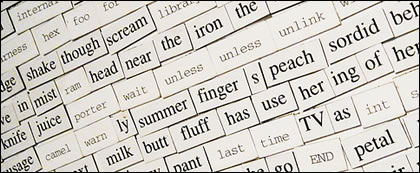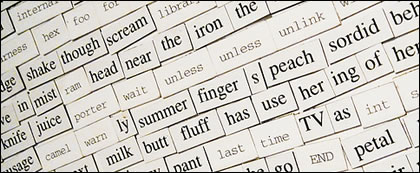
Hollywood actor Owen Wilson’s recent suicide attempt once more raises the question of what leads people to take their own life. Research into suicidal poets provides some clues.
This week it was confirmed that Owen Wilson, the Hollywood actor, attempted suicide. The question ‘why?’ naturally arises in these circumstances. While people’s specific reasons vary greatly, psychologists are, of course, interested in the general factors that lead to suicidal behaviour. Some fascinating evidence about what these general factors are comes from a study on poets, who appear particularly prone to suicide.
The study by Shannon Wiltsey Stirman and James Pennebaker from the University of Pennsylvania, used a text analysis program to examine poetry written over poets’ lifetimes (Stirman & Pennebaker, 2001).
They looked at 300 poems written by 20 different poets, half of whom eventually committed suicide. The linguistic features of these poems were then compared with poets who were not suicidal. Suicidal poets whose poetry was analysed included Sylvia Plath and John Berryman. Non-suicidal poets included Robert Lowell and Denise Levertov.
Poems were analysed to look at the specific features of the language to search for evidence for one of two well-known explanatory models of suicide:
- Hopelessness
The more traditional view of suicide is that people enter an extended period of desperation and sadness which leads to a complete breakdown in hope. Once hope is gone, suicide becomes a real possibility.If this theory is correct it suggests poets would tend to use more words about death in their poetry, and more references to negative emotional states like anger and sadness.
- Social disengagement
Another model of suicide is suggested by the eminent French sociologist, Emile Durkheim. Durkheim argued people become suicidal primarily because they become more obsessed with themselves, detached from social relationships and withdrawn from the social world generally.Fame can, in some ways, hasten these processes. Poets and actors, for example, are encouraged to focus on themselves and become more detached from social reality.
If this theory is correct, suicidal poets should use more references to the self and fewer references to communication with others.
Self-centred poetry, sex and death
Analysis of the poems did provide some limited support for the social disengagement theory. Suicidal poets were more likely to use the first-person singular (I, me, my) than non-suicidal poets.
On the other hand, no support was found for the hopelessness theory as suicidal poets were no more likely to use negative emotion words or talk about death than were the non-suicidal poets.
Having tested their original theories, the authors found that suicidal poets seemed more preoccupied with sex than non-suicidal poets. Indeed there was stronger evidence for a focus on sexual matters than on death itself in the suicidal poets.
Limitations
The authors of the study are the first to admit their research is exploratory – the main problem with it being the small sample size. They did also look for changes in language use over the poets’ career but didn’t find any results that provided support for either theory.
Self-centred
Despite these limitation, this study is very creative. It provides a useful way of investigating the factors relevant to suicide and how these are manifested in text. It also highlights the fact that a preoccupation with the self and withdrawal from social contact may well be central components in suicidal behaviour.
Perhaps this was a factor in what happened to Owen Wilson. It is certainly ironic that the film he pulled out of as a result of his suicide attempt is Tropic Thunder in which he was due to play a narcissistic Hollywood actor.
Reference
Stirman, S. W., & Pennebaker, J. W. (2001). Word use in the poetry of suicidal and nonsuicidal poets. Psychosom Med, 63(4), 517-22. (Full text)

